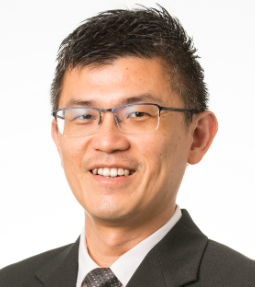“We are participating in God’s work, not vice versa,” reminds BGST principal Lai Pak Wah
Lai Pak-Wah // December 28, 2021, 10:44 pm

Reading the Christmas story anew is to remember "that God is already at work – even before we start our ministry and our work", writes BGST principal Lai Pak Wah. Photo by Aaron Burden on Unsplash.
Last week, we celebrated Christmas.
Some Christians have wondered whether we should celebrate Christmas at all, since we are not exactly sure whether Christ was born on December 25.
This, however, is to mistake symbolic truth for history.
Christmas is ultimately a festival of remembrance – to remember that the Son of God was truly born in the flesh some 2,000 years ago, for all humanity. It is also a celebration of divine mystery – that God cared so much for our ills and pains that He became human and to identify with us.
As the Christmas carol puts it: “He knows our need/To our weakness is no stranger!”
Regardless whether Jesus Christ was born on December 25, the celebration of His birth alone is worth its while!
A time for reflection
I am also thankful that Christmas occurs at the end of every calendar year. Why so? Let me explain.
When we come to the end of each year, we often reflect about it. What have we achieved during the year? Who have we lost? What are the joys and also the bitterness in our hearts? I did likewise this year.
I found myself becoming bitter, critical and judgmental – a spiritual sinking into a desolate mood.
Honestly speaking, I was very tired this time, both physically and spiritually. This has been a long year of coping with Covid-19 restrictions and the many changes and issues I have to address as Principal of Biblical Graduate School of Theology (BGST). These range from IT, operations, finance, spirituality, teaching, human resources, and so on.
I felt overwhelmed.
Indeed, I was frustrated. Frustrated as to why circumstances didn’t turn out as I planned. At the mistakes I made. And also why others didn’t cooperate with what I had planned.
Over the last two months, I found myself becoming increasingly bitter, critical and judgmental – a spiritual sinking into a desolate mood. Rina, my wife, and I both sensed it. I began to pick on others – friends, colleagues, family and even other drivers on the road!
God is at work
But I thank God for Christmas.
Because it invites us to read the Christmas story anew.
As we review the opening chapters of Luke’s Gospel, we encounter and are reminded again of what we have forgotten: That God is already at work – even before we start our ministry and our work.
Why do we strive as though the world is waiting for us to save them?
God had already put in place His plans to save the world – through an insignificant priestly couple called Zechariah and Elizabeth, and an insignificant young lady called Mary.
This should be a sober reminder for us. Why do we strive as though the world is waiting for us to save them? Or feel pressured to do something because if we do not, our business or ministry will be in peril?
This is not to say that we simply slacken off and relax; there are challenges to resolve and God wants us to participate in them. Yet, this is different from being entirely absorbed in or paralysed by the troubles brought by the perils.
Cause for celebration
This is because the God who sent His Son is still at work redeeming and transforming us. We must recognise then we are but participants in this ongoing process. We are participating in God’s work, not vice versa.
God who sent His Son is still at work redeeming and transforming us.
This is why I’m so thankful, even grateful, that Christmas is celebrated every end of the year: It prepares our hearts for the new year that awaits. It reminds those of us caught up in our frenzy of busyness, worries or attempts to “save” the world – that we are not Messiahs.
Because the true Messiah has come!
What do we do on our part is simply this: to walk in step with His Spirit and discern His guidance in our work and ministry.
To recognise that in all that we do, our ultimate task and goal is not a better business or ministry.
It is to allow God to use our ministries and businesses to mould and shape us. To allow Christ to use all that we do to transform us into His image, through the hustle and bustle of our lives – whether this is balancing our year-end accounts, working out safe distancing procedures, coding a software, or running a business meeting.
Prayer is key
All this is well and good. But how do we live a life that walks in step with Christ’s Spirit and not run ahead of Him? How do we participate in such a way that we become more like Christ?
Divine love will lead us to do what it takes in all we are stewarding for God.
This is when Matthew the Poor’s reflections are instructive. In short, the front where we battle is our prayer lives. We are to pray frequently and regularly each day, and allow these regular habits to transform us slowly but surely into images of Christ.
As Matthew puts it: “The frequency of prayer day and night, let us say 20 or 30 times a day having every time as much as the Spirit graciously grants in terms of words and love perhaps for five minutes or even for one minute each time, is enough to produce in our minds and hearts, as well as in our manners and character, a fundamental change, hardly perceivable to ourselves, but visible to everyone near us.
“For the frequent looking up to Christ in prayer impresses in our inner being the invisible image of Christ that is, His attributes, His exquisite sweetness and the light of His face.”
It’s my prayer for us all as we begin the new year of 2022 that we shall grow in our prayer life.
So that we will not just study or know about Christ in theory, but, as we pray, to encounter Him regularly. So that in this way, we shall be transformed to be like Christ, as we serve Him wherever He calls us – at home, church, work or in society.
For as we grow in love for Christ, we shall grow in love for others. That divine love will lead us to do what it takes in all we are stewarding for God.
First published on Mt Carmel BP Church Weekly, Dec 26, 2021. Republished with permission.
I was a failure but a family gave me a home; today I’m the National Director of YWAM Singapore
We are an independent, non-profit organisation that relies on the generosity of our readers, such as yourself, to continue serving the kingdom. Every dollar donated goes directly back into our editorial coverage.
Would you consider partnering with us in our kingdom work by supporting us financially, either as a one-off donation, or a recurring pledge?
Support Salt&Light




